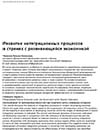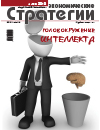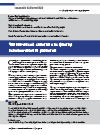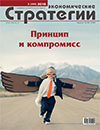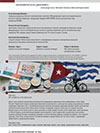Specifics of Using the World Capital Market by Developed and Developing Countries
DOI: 10.33917/es-1.199.2025.44-49
The purpose of the present study is to identif y the specifics of using the world capital market by developed and developing countries in modern conditions. It has been established that the interests of developed countries consist in shaping a controlled international financial market that will ensure long-term and low-volatility returns on assets without taking into account the interests of other entities in the global capital mark et. The interests of countries with developing economies are reduced to ensuring maximum return on assets in the shor t-term period, since in the long term they cannot compete with developed countries in the global financial mark et. Based on econometric calculations, it was made an assessment of the effects of growing investment returns in developed and developing countries due to the presence of competitive advantages in the global capital market. It is concluded that the global capital market is used by developed and developing countries in different ways — the former seek to ensure preservation of their privileges through exploiting global imbalances, the latter — to gain access to borrowed capital in order to stimulate their own economic development. Disproportions in the use and regulation of the global capital market lead to dependent position of developing economies, which is why they are striving to transform the global financial architecture to protect their own national interests.
References:
1. Vinokurov E.Yu., Grichik M.V. Novaya kontseptsiya mezhdunarodnykh rezervov: bezopasnost’, diversifikatsiya, neortodoksal’nye podkhody [New Concept of International Reserves: Security, Diversification, Unorthodox Approaches]. Voprosy ekonomiki, 2022, no 12, pp. 24–43.
2. Voskanyan M.A., Khurshudyan S.E. Kontsentratsiya kapitala v global’noy ekonomike kak faktor neravnomernogo raspredeleniya dokhodov [Concentration of Capital in the Global Economy as a Factor in Unequal Income Distribution]. Sovremennaya mirovaya ekonomika, 2023, vol. 1, no 2(2).
3. Golovnin M.Yu., Nikitina S.A. Sovremennye tendentsii dinamiki mezhdunarodnykh potokov kapitala [Current Trends in the Dynamics of International Capital Flows]. Mir novoy ekonomiki, 2018, no 12(4), pp. 46–56.
4. Kuznetsov A.V. Kontseptual’nye podkhody k formirovaniyu ustoychivoy mirovoy valyutno-finansovoy sistemy [Conceptual Approaches to Formation of a Sustainable Global Monetary and Financial System]. Finansy: teoriya i praktika, 2023, no 27(4), pp. 164–172.
5. Bulatov A. Kuda dvizhetsya mirovoy kapital [Where is the Global Capital Heading?]. Ekons, available at: https://econs.online/articles/opinions/kudadvizhetsya-mirovoy-kapital/
6. FDI income by counterpart area, BMD4. OECD, available at: https://www.oecd.org/
7. Country Composition of WEO Groups. IMF, available at: https://www.imf.org/en/Publications/WEO/weo-database/2023/April/groups-and-aggregates
8. Nesterov I.O. Rezervnye valyuty — istochnik nestabil’nosti mirovoy valyutnoy sistemy? [Reserve Currencies — a Source of Instability in the Global Monetary System?]. Vestnik Sankt-Peterburgskogo universiteta. Ekonomika, 2012, no 4, pp. 115–123.




